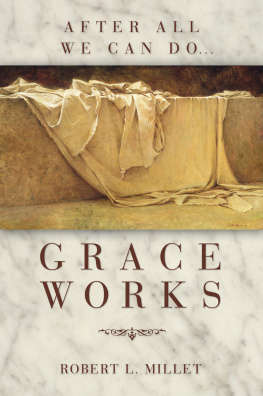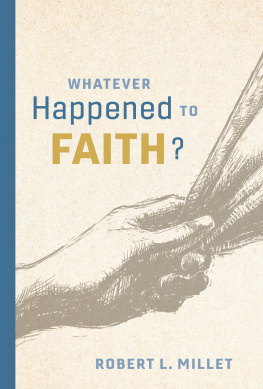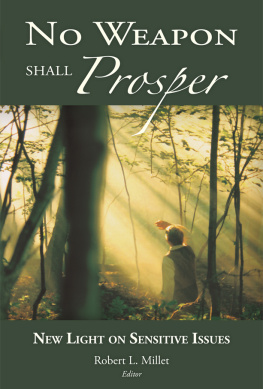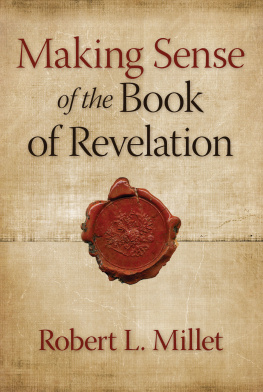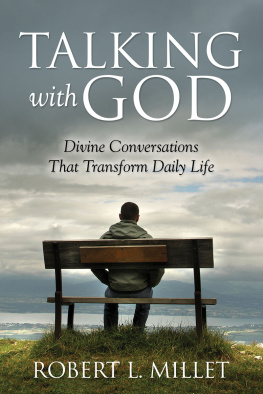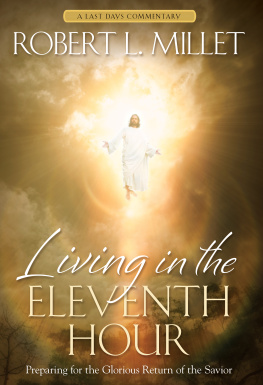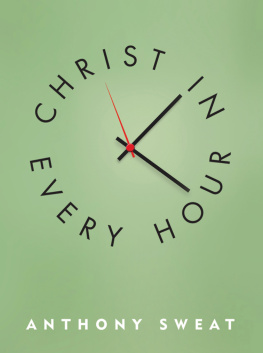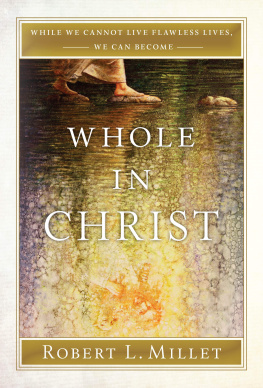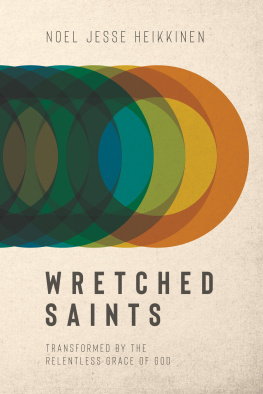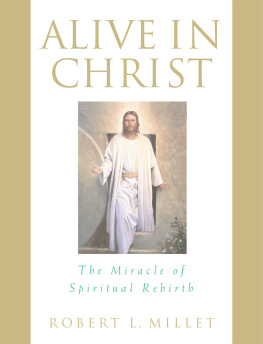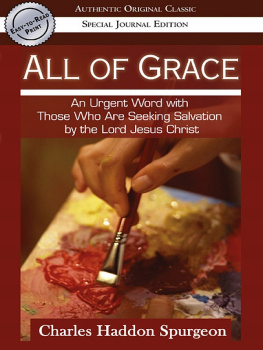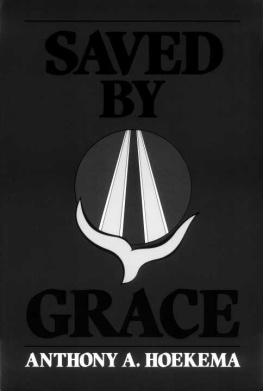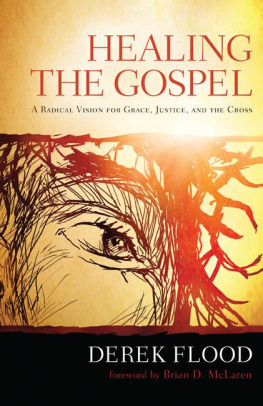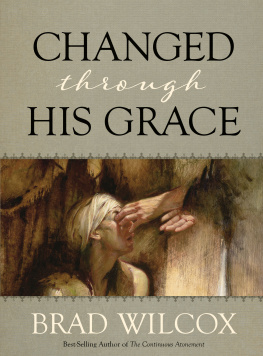After All We Can Do
Grace Works
Robert Millet
2003 Robert L. Millet.
All rights reserved. No part of this book may be reproduced in any form or by any means without permission in writing from the publisher, Deseret Book Company (permissions@deseretbook.com), P.O. Box 30178, Salt Lake City Utah 84130. This work is not an official publication of The Church of Jesus Christ of Latter-day Saints. The views expressed herein are the responsibility of the author and do not necessarily represent the position of the Church or of Deseret Book. Deseret Book is a registered trademark of Deseret Book Company.

Millet,Robert L.
Graceworks / Robert L. Millet.
p. cm.
Includesbibliographical references and index.
ISBN1-57008-906-X (alk. paper)
1. ChristianlifeMormon authors.
2. Church of Jesus Christ ofLatter-day SaintsDoctrines. I. Title.
BX8656.M542 2003
234dc21 2002154964
Printedin the United States of America
Publishers Printing, Salt Lake City, Utah 72076-7033
10 9 8 7 6 5 4 3 2 1
Preface
A prominent Church leader mentioned to me that while ona flight across the country, he became involved in a conversation with awell-known Christian pastor. After some initial remarks, the otherman (not of our faith) said essentially, I want you to know that many of us inthe religious world are thrilled with the changes that are taking place withinMormonism.
Whatkinds of changes do you mean?
Youknow, he replied, your growing acceptance in recent years of Jesus Christ,and your willingness to speak and teach of his mercy and grace.
TheChurch leader then asked me, Do you know how nervous and uncomfortable such acomment makes me and some of my brethren?
Mysilence signaled my answer.
Hecommented that of course we accept and rely upon the grace of the Savior. Wehave always done so. Thats nothing new. Of course were Christian. But thereare some doctrinal differences between our beliefs and those of our brothersand sisters of other Christian faiths, and we must never, in an effort to buildbridges of understanding or friendship, minimize our differences. Our strengthlies in our distinctiveness.
He thenencouraged me to continue to teach the Atonement, to emphasize the centralityof our Lords mercy and grace, but to do so with balance, always pointing outthe vital place of works of righteousness and the need for them.
Thisbook is an effort to be true to that charge. I have written other books andseveral articles on the subject of grace and works, but not until now have Iattempted to synthesize and distil our teachings on faith, grace, works, andsalvation in a manner that is at once plain and clear and personallyapplicable. Not only do I desire to be understood but I have a deep and earnesthope that I will not be misunderstood.
Thetheological continuum stretches from those who believe they are saved by gracealone, without ordinances (sacraments) or works of any kind, to those whobelieve in a kind of works righteousness that seems to bespeak a need to savethemselves through their own unaided efforts. The apparent doctrinal difficultyis certainly nothing new. The apostles Paul and James faced it in their day,and I believe both men would have concluded, as should we, that grace versusworks is a false dichotomy. Are we saved by grace or by works? is the wrongquestion. Better questions are In whom do I trust? Upon whom do I rely? Whatdoes it mean to have saving faith in Jesus Christ?
The Book of Mormon teachesplainly the nature of fallen man and the absolute necessity for the cleansingand redeeming power of the blood of Christ. Having come alive to the principlesof salvation found in that keystone scripture, Latter-day Saints areable to read the Bible, especially the writings of the apostle Paul, with neweyes. We discern and feel the power of his teachings, teachings that came bythe same spirit of revelation that inspired Lehi and Jacob and Benjamin andAlma and Moroni. Thus, as a people we have become more and more aware of the burdenof all scripture, that salvation was, and is, and is to come, in and throughthe atoning blood of Christ, the Lord Omnipotent (Mosiah 3:18) and that Christhath abolished death, and hath brought life and immortality to light throughthe gospel (2 Timothy 1:10).
Acknowledgments
I amindebted to many persons for their contributions in the preparation of thiswork.
My students through the years have made itnecessary for me to understand and discuss the doctrine of Christ in clear andunmistakable terms. My colleagues at Brigham Young University and in thebroader Church Educational System have pushed me to think and rethink and prayand study with real intent in order to represent accurately and truly themeaning of scripture, both ancient and modern. Many of my Evangelical Christianfriends have rendered an especially valuable service: they have challenged meto know my religion well enough to articulate my faith in therestored gospel.
As she has for many years now, my long-timefriend and assistant, Lori Soza, undertook the daunting task of helping toprepare the manuscript for publication. My dear friend Suzanne Brady, senioreditor at Deseret Book Company, has simply made this a better book. Her keeneditorial eye and her sensitivity to my writing style have combined to assistme to communicate clearly what I feel so deeply.
Finally, although this bookwould not have been possible without the contributions of these individuals andmany others, I alone am responsible for the conclusions drawn from the evidencecited. I have sought to be true to the teachings of scripture and modernprophets, but this work is a private endeavor that does not presume to speakfor either Brigham Young University or The Church of Jesus Christ ofLatter-day Saints.
Prologue
Too Good to Be True
Not long ago, a student sat in myoffice and asked, What do you wish you had understood when you were my age?
Iquickly thought back over the past thirty years and answered, I wish I hadunderstood the importance of eating and exercising properly. Having suffered aheart attack during the preceding year, I have to confess that the matter ofphysical health stood out prominently in my mind.
Thatsgood to know, the student responded, but what I meant was, What do you wishyou had understood in the scriptures, in the gospel, when you were twenty-fiveyears old?
Now thatwas a different question. After a few moments of reflection, I replied, Ireally wish I had understood more about the Atonement. I thought for anothermoment and added, I think if I had understood the proper relationship betweengrace and works, I would have lived my life a little differently. We talkedfor about half an hour about what I meant.
Sincethat conversation, I have pondered the young students question many times. I really dont have anyserious regrets in my life, and there arent many things I would have done differentlyif I had it all to do over. Oh, Ive been foolish and unkind and insensitive afew thousand times, but God has been patient with me while I have wrestled withbecoming a human being. The Lord has been good to me, and my life has been richand rewarding. In fact, I have commented to my wife, Shauna, that if at thetime of my heart attack the Lord had seen fit to take me in death, other thanthe fact that I would have hated to leave my family for a season, I would havehad no regrets. Life has been good. We have been blessed and prospered wellbeyond what we deserve.

